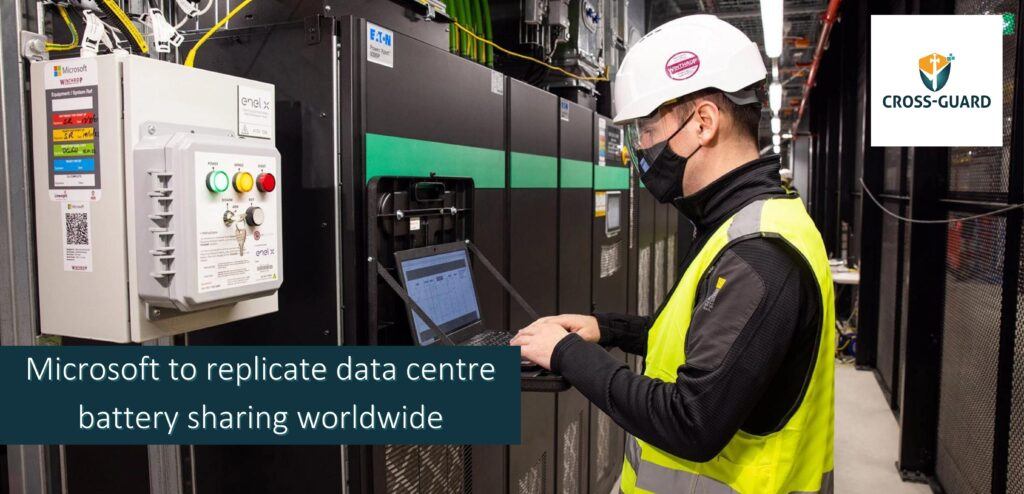Microsoft to replicate data centre battery sharing project worldwide

Microsoft is set to replicate a worldwide project that has been tried and tested in the company’s data centre in Ireland. The scheme, announced in 2022, uses a lithium-ion battery energy storage system (BESS) and a grid-interactive uninterruptible power supply (UPS) from Eaton to share energy with the local grid when needed. Christoph Mazur, senior manager of energy programmes at Microsoft announced the news during the Energy Storage Summit in London in February.
Data Centres including Microsoft use diesel generators with lead-acid batteries as a power source for energy backup, however, this project uses lithium-ion battery banks and grid-interactive UPS technology in Dublin which has reduced the need to fire up the diesel generator. The batteries have been certified for connection to electricity supply networks to help operators when demand exceeds power generated elsewhere by wind, solar and other sources.
Having been proven in Dublin, the system could now be applied everywhere, senior program manager Dr Christoph Mazur, told the Energy Storage Summit EU in London this week, according to a report from Energy Storage.
Christopher Mazur said ‘The system is helping the decarbonization of the Irish grid, by using stored energy to support it when renewable energy supplies are lower than demand’. Tony Whittle, managing director of Enel X UK & Ireland discussed how grid-balancing services are usually provided by fossil fuel plants which can be switched on when required, but this has created a bigger problem. The availability of fossil fuel power is scheduled to be decreased over the years and will create a big problem in powering data centres effectively.
Ireland wants to move to 70 percent renewable energy by 2030, as 10 percent of the country’s energy is currently used by data centres, with predictions of it rising to 30 percent by 2030. It is essential to try and use renewable alternatives for the country. In conclusion, data centres will be able to use their energy storage resources (UPS) during emergencies or periods of peak demand, but also power the grids with energy generated by them, thus reducing levels of variability in renewable energy systems.
SHARE
DOWNLOAD A COPY OF OUR BROCHURE

GET A QUOTE
Get a Quote Form
"*" indicates required fields
